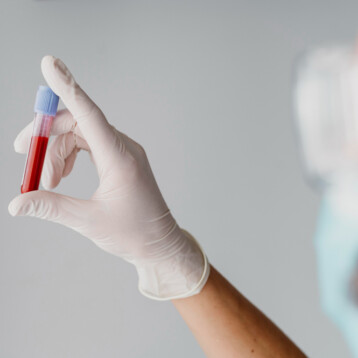Bad breath just used to simply mean poor hygiene or a case of the mornings, but as science has shown there could be more to the chemicals in our breath than what we are accustomed to when we wake up in the morning. Research now shows that chemicals present in our breath may reveal the presence of a deadly disease: lung cancer.
A basic breath test for detecting lung malignancy has just gotten closer to becoming as common as taking a breath test for the presence of alcohol. Research shows that certain compounds present in our breath may reveal whether one has lung tumors or not. Results from a research work presented at the Society of Thoracic Surgeons 50th annual meeting revealed that state-of-the-art sensors can successfully detect certain compounds in the breath released by cancer cells.
A group of researchers led by Michael Bousamra, MD, from the University of Louisville have developed a microprocessor made of silicone and mass spectrometer that shows 95% specificity in detecting volatile organic compounds that are associated with lung malignancy. Recognized as carbonyls or more accurately ketones and aldehydes, these chemicals produced by the body and can offer a sort of metabolic signature for lung cancer as well as a host of other diseases.
Dr. Bousamra and his research team provided the breath test to patients that already had possible tumors that were diagnosed by CT scans. They then tried to match it with breathalyzer findings along with biopsy and with their current clinical data. For those patients whose breaths had elevated levels of at least 3 or 4 volatile organic compounds, the result of the test was ninety-five percent accurate in predicting the tumors to be malignant, according to researchers.
The opposite also proved to be true as well. When the breath of the participants did not contain the cancer-specific chemical compounds, the accuracy was 80% in terms of predicting the tumors to be benign in nature. The researchers however caution that their current data is still preliminary and needs to be published in a peer-review journal but there is enough evidence to suggest the notion that cancer cells release certain organic compounds present in the breath so as to indicate the presence or absence of malignant tumor cells.
A 2012 study from researchers associated with the Winship Cancer Institute at Emory University who presented their findings to the American Society of Clinical Oncology and published the same in the Journal of Clinical Oncology showed that seventy five specific unstable organic compounds were definitely different in the breath of patients that have cancer against those that do not. A similar study also published in 2012 which was able to identify colon carcinoma with an accuracy of 80%, utilizing previously identified volatile compounds that were organic in nature.
There is currently a race to perfect as well as prove a breath test for cancer in the United States. A large number of research teams are working to determine more cancer specific unstable organic compounds so as to develop devices that are sensitive enough to accurately determine their presence.
Thanks to advances in cancer detection such as this breathalyzer and chips, individuals are able to detect the onset of cancer early on and increase the odds of defeating the malignant cells.










